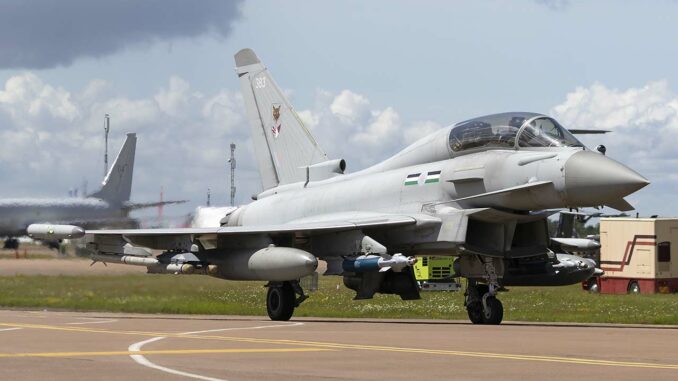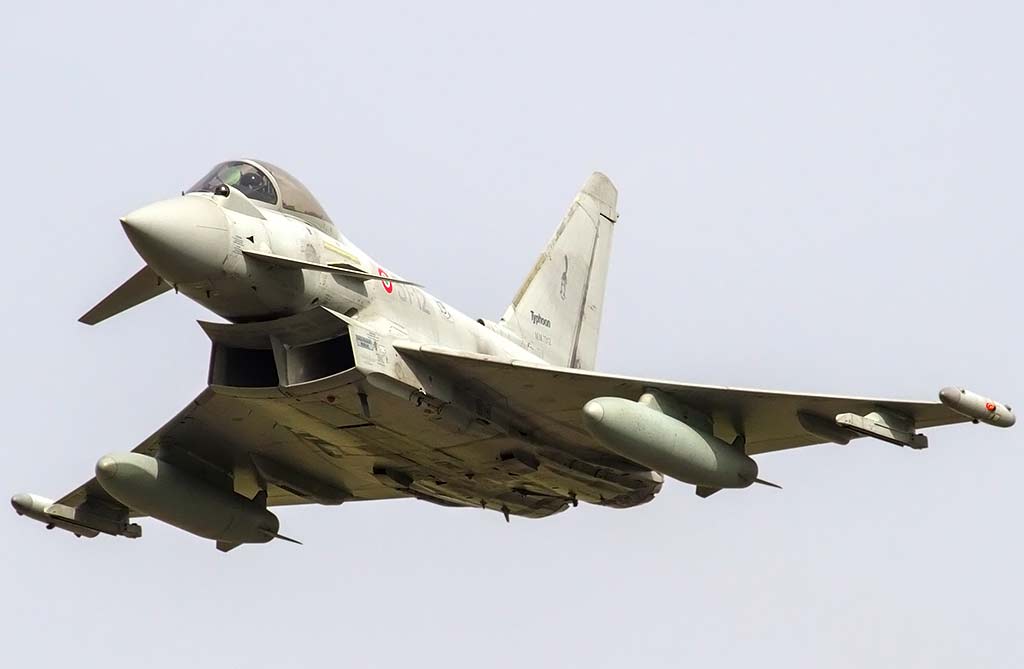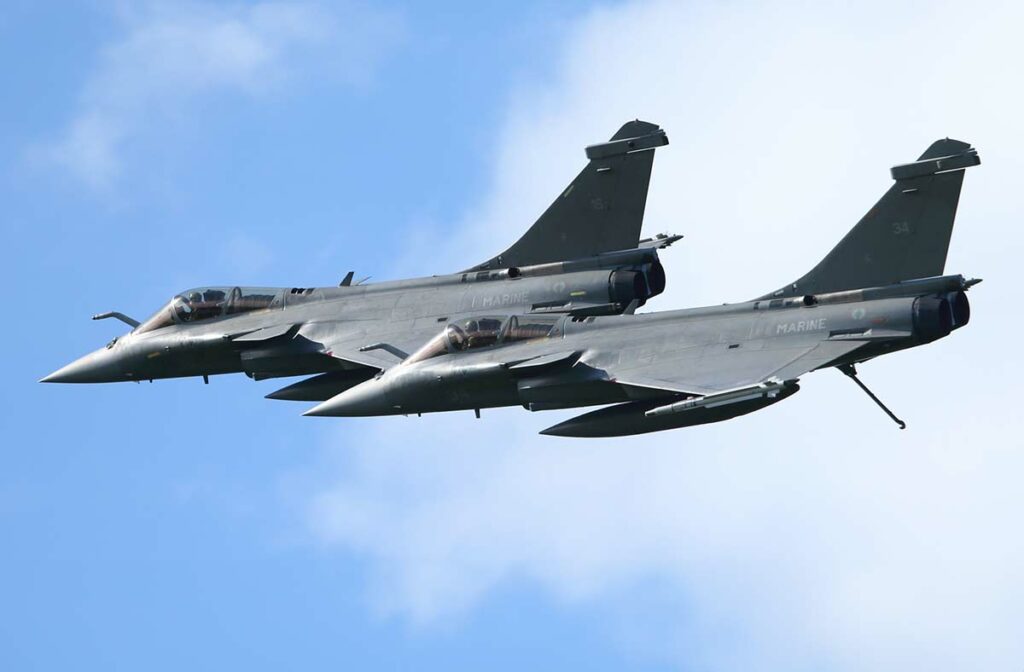
Saudi Arabia’s decision between buying the Eurofighter Typhoon and the Dassault Rafale raises strategic and geopolitical questions.
Eurofighter Typhoon or Dassault Rafale: Saudi Arabia at a crossroads
Saudi Arabia is at a crossroads in its air diplomacy with the potential acquisition of 50 Eurofighter Typhoon fighters, following German approval of the deal. This decision introduces new possibilities and uncertainties, leading the kingdom to evaluate the choice between the Eurofighter and the attractive alternative represented by the Dassault Rafale.

German Foreign Minister Annalena Baerbock said last week that the decision was influenced by ongoing developments in the growing conflict between Hamas and Israel, referring to Saudi Arabia’s interception of missiles launched by the Houthis towards Israel. However, experts warn against accepting this justification too simplistically, given Saudi Arabia’s current arsenal, which already includes a fleet of capable fighters.
Geopolitical and strategic consequences of Saudi Arabia’s choice
Saudi Arabia’s choice between the Eurofighter Typhoon and the Dassault Rafale has implications that go far beyond armaments. This choice reflects not only the kingdom’s military needs, but also its alliances and geopolitical orientations. The Eurofighter Typhoon, produced mainly by the UK, Germany, Italy and Spain, symbolizes a strengthening of ties with Europe, while the Rafale, produced by France, could signify a rapprochement with this country in particular.
Germany’s involvement in this potential deal is particularly noteworthy, given its usually restrictive policy on arms sales to countries involved in active conflict. This approval can be interpreted as Germany’s desire to play a more active role on the international stage, particularly in the Middle East.
Moreover, the choice of Saudi Arabia could influence the regional balance of military power. The acquisition of advanced fighters such as the Eurofighter Typhoon or Rafale would significantly enhance the capabilities of the Saudi air force, which could change the security dynamic in the region, particularly in the face of Iran and in the context of the Yemeni conflict.
It is also worth considering the economic and technological implications of this acquisition. A purchase of this scale represents a massive investment, not only in terms of initial cost, but also in training, maintenance and infrastructure. The choice of fighter could also determine the future direction of technological and industrial collaboration between Saudi Arabia and the supplier country.

Saudi Arabia’s decision between buying the Eurofighter Typhoon and the Dassault Rafale is a major strategic choice that will have repercussions on its international relations and the balance of power in the region. This choice reflects not only the kingdom’s military needs, but also its geopolitical orientation and strategic alliances.
War Wings Daily is an independant magazine.